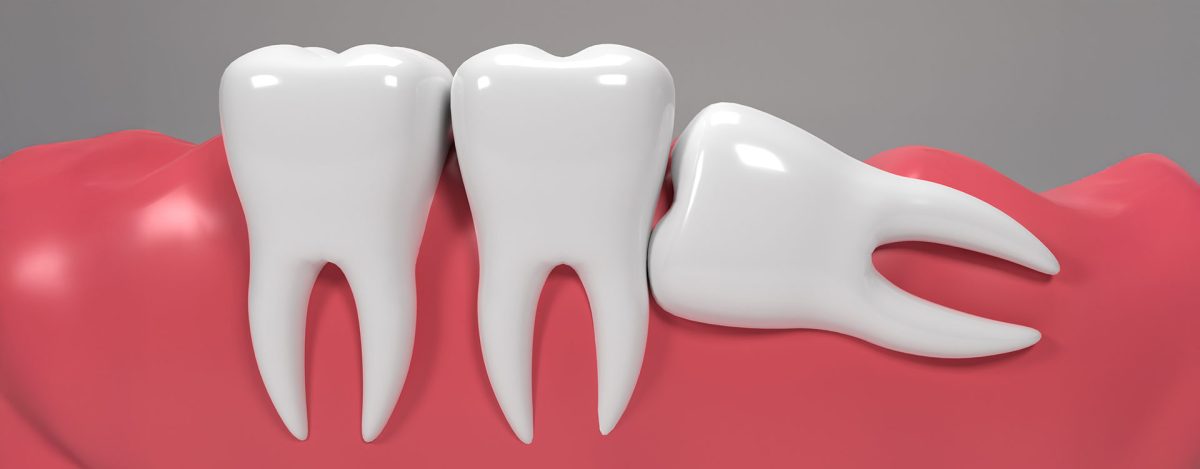
The Truth About Tartar Cleaning: Is It Really Necessary?
10 July 2025
The 7 Best Fast Effective Teeth Whitening Methods
22 August 2025What are Wisdom Teeth and Why Do They Need to Be Removed
Wisdom teeth, or third molars, are the third molars that erupt in the back of your mouth. For most individuals, wisdom teeth erupt in late teenage years or early adulthood at the ages of 17 to 25. Although there are some individuals who do not develop problems with wisdom teeth, wisdom teeth cause a series of dental complications for other individuals. Normally, extraction of wisdom teeth is needed in a bid to prevent complications. The following are blog posts regarding what wisdom teeth are, why they need to be removed, and why surgery to have your wisdom teeth removed is needed for your health.

What Are Wisdom Teeth?
The wisdom teeth are the third and final molars at the back of your head. Humans possess four of them, two in the top and two in the bottom. Early human beings got along just fine with these teeth, using them to smash uncooked vegetable material, which required more pressure to break up. As human diets changed, so did the necessity of using wisdom teeth. Today they’re most often more of a nuisance than they’re worth.
For most people, the wisdom teeth erupt without any issues. For some people, wisdom teeth will have no room to erupt appropriately or will erupt at an angle and cause pain and a range of dental problems. Wisdom teeth removal enters the scene here.
Why Do Wisdom Teeth Need to Be Removed?
There are many reasons dentists typically recommend wisdom teeth be removed. Wisdom teeth do not need to be removed for all people, but for some others, it is typically done in order to prevent future potential dental problems. Let’s take a look at the most common reasons for wisdom teeth to be removed.
1. Impacted Wisdom Teeth

One of the most common reasons for wisdom teeth removal is due to the fact that the wisdom teeth are impacted. An impacted tooth is a tooth that will not be able to erupt completely from the gums. It could be due to the fact that the mouth is not large enough for the tooth to grow naturally, or the tooth gets stuck against other teeth or bone. Impacted wisdom teeth will be painful, swollen, and infected, and need to be surgically removed.
Impacted wisdom teeth may have no symptoms at all but progress to more serious problems like infection, cyst, or even harm to the adjacent teeth. Wisdom teeth surgery in such cases is most often the best option to remove the impacted teeth and prevent further harm.
2. Crowding of Teeth
The second reason for wisdom teeth removal is preventing crowding. If the wisdom tooth erupts at an angle, it is going to be rubbing against the molar next to it. This is applying pressure to your teeth and is going to result in crowding or displacement and putting pressure on your smile and the way that your teeth operate. Avoiding the natural alignment of your teeth by having wisdom teeth extracted saves individuals who have had braces or orthodontia in the past.
3. Risk of Infection
Impacted wisdom teeth below the gum line or half erupted wisdom teeth will produce areas where bacteria and food collect. These are difficult to clean and can become infected or lead to gum disease. Infections from a wisdom teeth issue will cause pain, swelling, and even infection of the rest of the mouth. Wisdom teeth extraction will avoid this and protect the overall oral health.
4. Formation of Cysts
In other cases, affected wisdom teeth may lead to the development of cysts. A cyst is a fluid filled sac that can develop around an affected tooth. Cysts can lead to jawbone, surrounding teeth, and nerve damage. If left untreated, cysts can lead to additional issues like bone destruction or nerve destruction. Wisdom teeth surgery can avoid such complications by extracting affected teeth before they develop into cysts.
5. Decay and Cleaning Difficulty
Because the wisdom teeth are found at the rear of the mouth, they are very hard to brush and floss. This puts them at high risk for tooth decay, gum disease, and cavities. Wisdom teeth that are decayed result in infections, pain, and other severe dental issues. Removal of wisdom teeth eliminates the decay problem in these difficult to reach areas.
The Procedure for Wisdom Teeth Extraction

Once your dentist has agreed that you will require wisdom teeth extraction, the procedure is most likely to be carried out via a surgical procedure. The surgery can be either by a general dentist or an oral surgeon depending on how complicated the case is. The following is a breakdown of procedures applied in wisdom teeth surgery:
- Consultation and Examination: The process is to just go visit your dentist, and he/she is going to make you get X rays so he can see where your wisdom teeth are located and if they can come out or not. Your dentist will explain what you’re able to do and how much you’ll need anesthetics for.
- Anesthesia: Based on how complex the surgery is and what you prefer, you can have it done under sedation, local anesthesia, or general anesthesia. Local anesthesia will put the area of where your wisdom teeth are numb, but sedation or general anesthesia will knock you out or calm you in order for it to be performed.
- Surgical Procedure: Your tooth will be exposed by incising the gum tissue by your surgeon. Your tooth can be impacted, and so your surgeon will have to remove the tooth piece by piece. The tooth is removed first and then the wound is closed, aftercare is given to you.
- Recovery: Swelling, bruising, and discomfort will occur following wisdom teeth surgery. Pain killers and ice packs usually are suggested to alleviate these sensations. You need to be careful to abide by your dentist’s aftercare instructions in order to facilitate healing.
Wisdom Teeth Problems and Long Term Effects
While wisdom tooth extraction eliminates current pain and future dental complications, it’s also recommended to rectify potential long term consequences. Neglected impacted wisdom teeth can lead to perpetual aching, infection, and other complications. The longer the issues of wisdom teeth are allowed to set in, the tougher surgery will become.
By having early removal of wisdom teeth, you will be exempted from more painful and more invasive surgery at an advanced age. Removing wisdom teeth is mostly recommended to be done by the time you are 25 years old because the roots of the teeth have not yet formed and therefore the extraction will not be more complicated and risky.

The Emotional Impact of Wisdom Teeth Removal
To most, the idea of wisdom teeth surgery scares them. The thought of needing to undergo a surgical operation and be subjected to post operative pain is intimidating. But surprisingly enough, wisdom teeth removal is a standard and usual procedure. Most people have surgery and heal just the same.
Though the recovery process can be uncomfortable, the long term rewards of wisdom tooth extraction are more than worth the short term discomfort. You can reasonably expect a healthier smile, less chance of infection, and better aligned teeth. Knowing that you’re doing a good job of taking care of your dental requirements and not taking a risk about possible future hassle at hand could be comforting and enable you to focus on healing and getting back into your own routine.
It is a natural, irreversible part of life for most people, particularly with impacted wisdom tooth or any other dental affliction involved. If there is pain, infection, or crowding, then surgery on the wisdom teeth would be the best course of action in order to prevent future issues. Once you understand why the wisdom teeth need to be removed and what the surgery entails, you can make an informed decision where your dental care is concerned. With good care and attention, wisdom teeth complications can be overcome, and you can enjoy a healthy smile for years to come.













